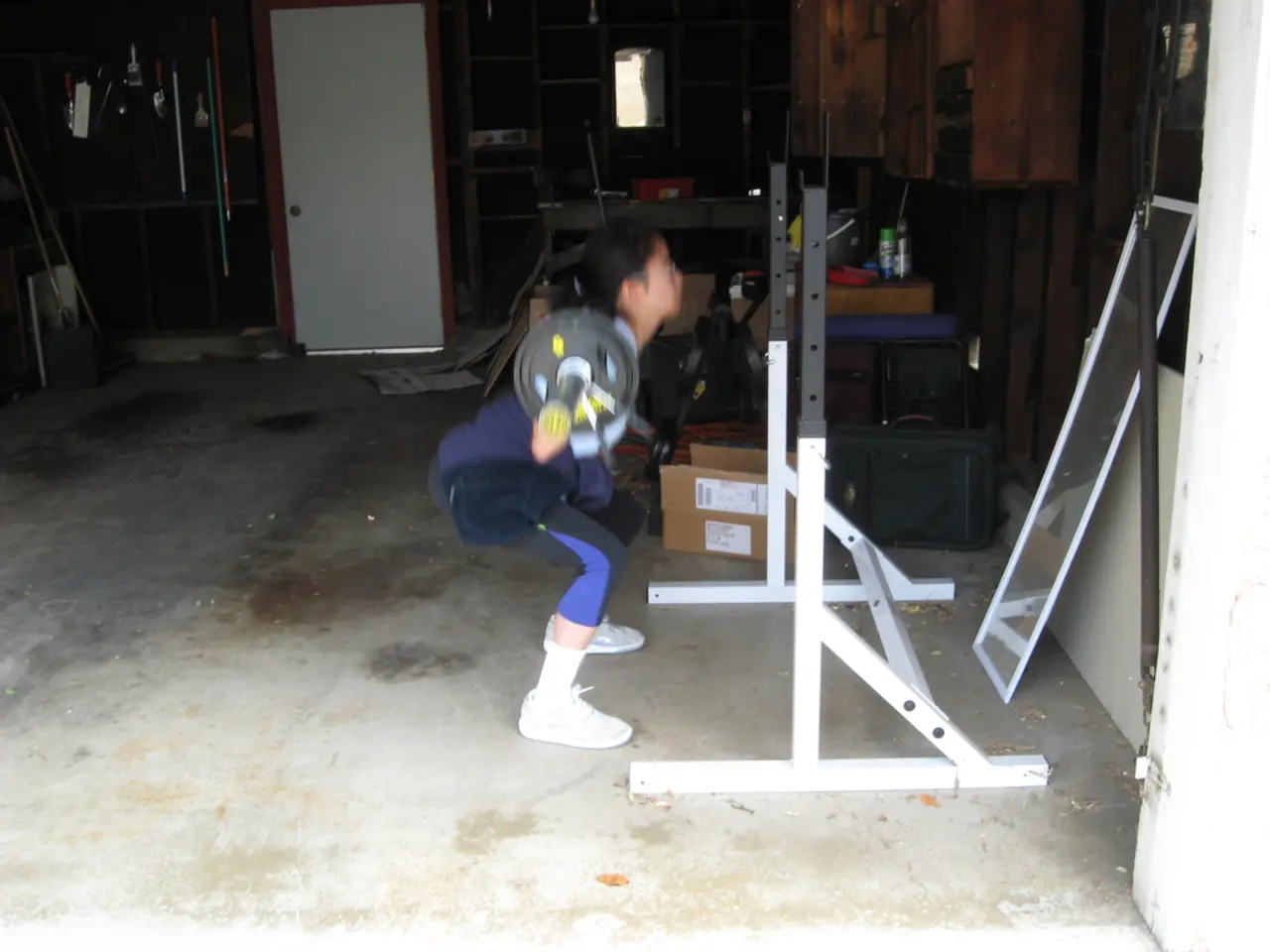Weightlifting Dilemma: Which Is More Efficient - Increased Weight or Boosted Reps in Workouts?
The concept of progressive overload, a fundamental principle in fitness, involves gradually changing factors in your workout routine to challenge your body and promote strength gains. This approach is key to unlocking your full potential and achieving your fitness goals.
Embracing Versatile Training Programs
Experts recommend incorporating training programs like Pilates into your routine. Pilates, which combines breathing, strength exercises, coordination, and stretching, focuses on the deep muscles of the core. It effectively strengthens and stretches these muscles, improves posture, and can be adjusted for individual intensity levels.
Comprehensive fitness workouts that blend cardio, strength, and stabilization exercises targeting multiple muscle groups also contribute to core strength and body control. For women, targeted pelvic floor training done multiple times daily is highly effective for strengthening the core muscles related to bladder and pelvic support.
Keeping Your Routine Fresh
Maintaining motivation and effort is crucial for any workout routine. Mixing up your routine, decreasing rest between sets, changing the tempo of exercises, altering the order of exercises, and increasing the intensity of workouts can all help prevent boredom and keep your routine both effective and enjoyable.
Progressive Overload: The Key to Strength Gains
When the last two reps of each set stop feeling challenging, it's time to increase weight. Start with manageable weights if you're new to lifting, perhaps 2 or 3 sets of 12 to 15 reps per exercise to practice form. As you become more comfortable, go up in weight in small increments to squeeze out big results from little changes.
However, be careful not to lift weights so heavy that you're failing reps, especially if you're new to lifting. To build muscle mass or lose weight, perform 4 sets of 6-12 reps with 90 seconds to 2 minutes rest between sets. To improve muscular endurance, perform 3 sets of 12-20 reps with 90 seconds rest between sets.
Periodization Training: A Powerful Approach
Periodization training, which involves incorporating heavyweight, low rep training combined with lightweight, high rep training, can help increase overall power output and high end strength numbers. Perform 5 sets of 3-5 reps with 2 or more minutes rest between sets to see significant improvements.
The Benefits of Strength Training
Strength training offers numerous benefits, including decreasing the risk of chronic diseases, improving mental and physical health, boosting mood, energy, and self-esteem, and increasing brain function. So, whether you're looking to build muscle mass, lose weight, or simply improve your overall fitness, incorporating strength training into your routine is a smart choice.
Remember to always include a proper warmup and cooldown in your routine to avoid fitness plateaus, and don't forget to switch up the weighted implement used to keep your routine both effective and fun. With these tips in mind, you're well on your way to a stronger, healthier you!





